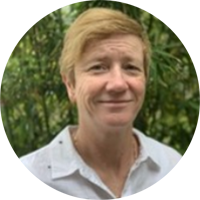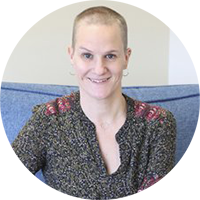Earlier this month, the National Organisation for Fetal Alcohol Spectrum Disorders Australia (NOFASD Australia) hosted its virtual FASD Forum and explored the theme ‘FASD@50’, commemorating 50 years since FASD was first identified in the literature.
This event brought together more than 100 people, including people with FASD, their parents and carers, academics and clinical practitioners.
FARE was in attendance and Joanna Le, FARE Projects and Partnership Director, spoke about our Every Moment Matters campaign. This campaign raises awareness of the risks of alcohol use during pregnancy and while breastfeeding, including FASD, and changing people’s behavioural intentions about alcohol use during pregnancy and while breastfeeding. Learn more about our campaign here.
Below are some of the key topics shared by other presenters:

Dr Kenneth Lyons Jones, Professor, Pediatrician, and Researcher
One of the first to identify FASD in research, Dr Jones spoke about prevention, interventions, and screening. Only one in 10 people with FASD have sentinel facial features, which is why FASD is also known as the ‘invisible disability’. Dr Jones spoke passionately about ending the stigma of FASD saying screening is needed in education and criminal justice to stop the school-to-prison pipeline. Learn more about Dr Jones’ work.

Dr Vanessa Spiller, Clinical Psychologist
As a psychologist, Dr Spiller shared a hypothetical example of 8-year-old Tia stealing pencils at school to demonstrate how FASD affects different brain functions. Tia understands rules and says sorry, but this does not show she ‘knows better’. Teachers can wrongly assume that when a child with FASD says things like “Sorry,” their behaviour will change. To ‘know’ needs more brain areas like adaptive functioning, executive functioning, attention, language, cognition and memory. Read more about Dr Spiller’s work here.

Dr Christie Petrenko, Research Associate Professor of Psychology and Assistant Professor of Pediatrics
Surviving is doing what is necessary to live. It has been said that it is like dragging yourself forward without a clear destination. While thriving is defined by tirelessly challenging oneself, reaching higher, and making a steady and good improvement in what we do and set out to do. Dr Petrenko talked about the two approaches and how they are based on different parent/carer assumptions, strategies, and outcomes. Dr Petrenko designed Families Moving Forward (FMF) Connect, a smartphone app to help parents and carers of children with FASD thrive while managing their children’s condition and needs. Learn more about Dr Petrenko’s work here.

Suzanne Hall, Clinical Psychology Registrar
Sexualised behaviours in children with FASD can be complicated and challenging. Ms Hall spoke about the importance of providing children and young adults with gentle, non-judgemental responses without punitive consequences. She also encouraged parents and carers to address consent, risk, impulsivity and dysmaturity. Find out more here.

Dr Nate Sheets, Behaviour Consultant and Parent Coach
Sexualised behaviours in older children and teenagers with FASD can be complex. Mr Sheets said supervision, support, connection and collaboration are all needed to address this topic, which can be difficult for parents and carers to navigate. He recommended that parents and carers consider sensory stimulus, impulsivity and opportunity, trauma and exposure. For example, using fidget toys to assist with sensory regulation. He also said it’s important to provide developmentally appropriate sex education. Read more about Mr Sheets’ work here.







